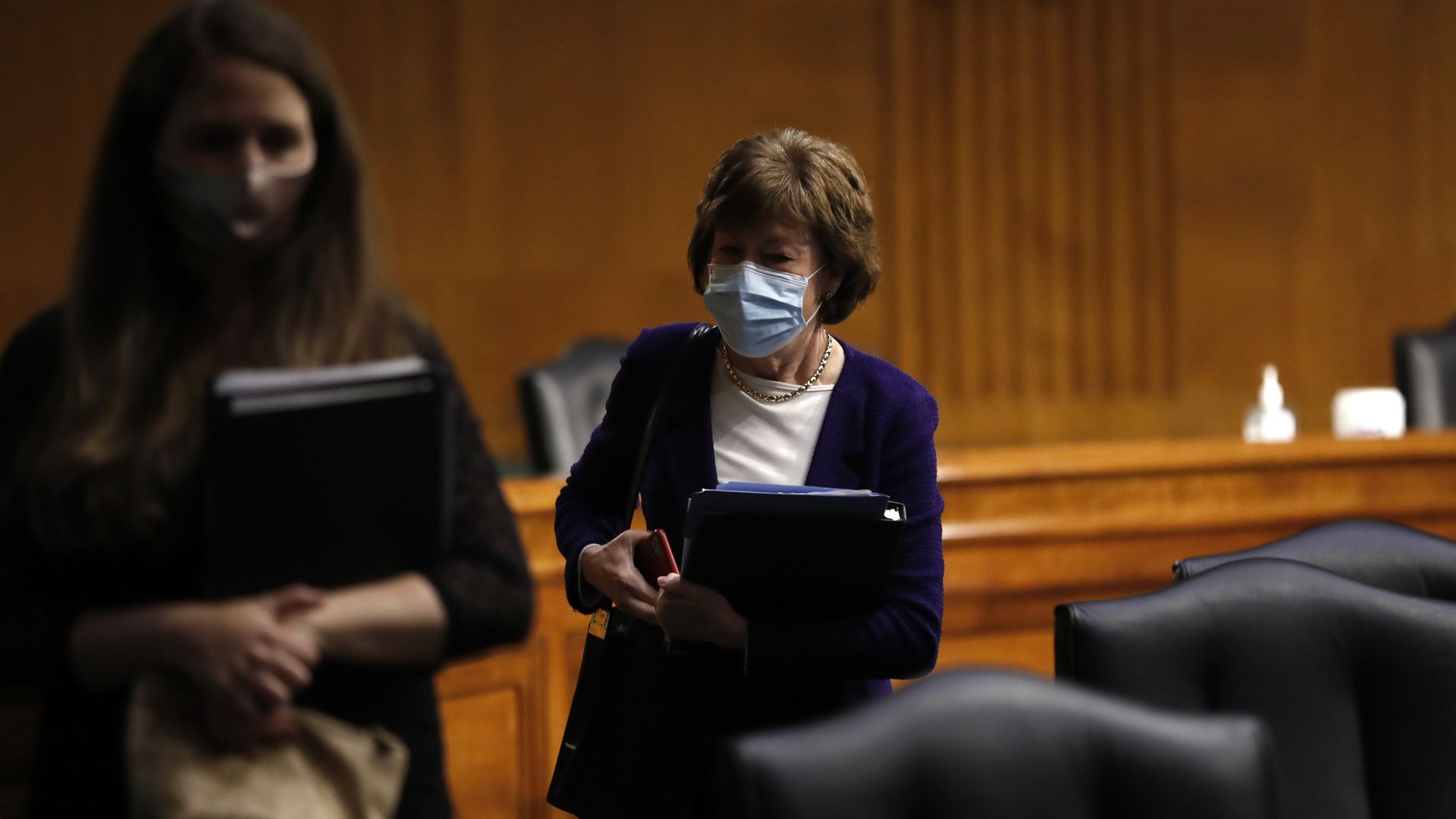Collins fears testing woes could make senators "super-spreaders"
Add Axios as your preferred source to
see more of our stories on Google.

Collins wears a mask as she departs a Senate hearing. Photo: Andrew Harnik/Getty Images
Sen. Susan Collins took issue Thursday with Majority Leader Mitch McConnell's decision not to accept the White House's speedy coronavirus tests, worrying in a private lunch with GOP colleagues that untested senators could become "super-spreaders" when they return to their home states.
Driving the news: The pushback was part of a broader airing of concerns in today's Republican Senate lunch, in which McConnell defended the political necessity of his move, according to several people familiar with the discussions.
What they're saying: McConnell told colleagues at the lunch that he wasn't opposed to the idea of accepting Trump's offer of the White House giving the Senate access to fast-track Abbott Laboratories tests.
- But McConnell believed he had no choice but to side with House Speaker Nancy Pelosi and reject Trump's offer, because he thought it would have been terrible politics if Democrats had refused the tests and Republicans had accepted them at a time when there's not enough testing for the people who most need it, according to sources familiar with the conversation.
- Sen. Ben Sasse (R-Neb.) agreed with McConnell about the politics of declining the tests. But Sasse added that "a lot of people in the White House are treating this like a communications challenge and not a logistics problem" and that "their messaging is wrong because they haven’t done the hard work."
- Sens. Martha McSally (R-Ariz.) and John Cornyn (R-Texas) were more supportive of the White House's positive assessments about the testing so far.
- Sen. Lisa Murkowski (R-Alaska) also said she doesn't fault McConnell's decision about testing, and understands why he agreed to reject the White House's offer, her spokesperson told Axios.
- However, Murkowski told the GOP conference that senators shouldn't be traveling back and forth from their home states to Washington, and if they insist on doing so then the Senate should have a better testing system.
- She also suggested that the Senate remain in session for a longer time, then recess for a longer period, to minimize risk of infection or becoming asymptomatic carriers.
- A group of senators — Roger Wicker (R-Miss.), John Thune (R-S.D.), Tim Scott (R-S.C.), Roy Blunt (R-Mo.) and Collins — all voiced concerns that the current U.S. testing capacity is not where it should be.
Flashback: McConnell and Pelosi last weekend declined the Trump administration's offer to provide additional coronavirus tests to Congress.

